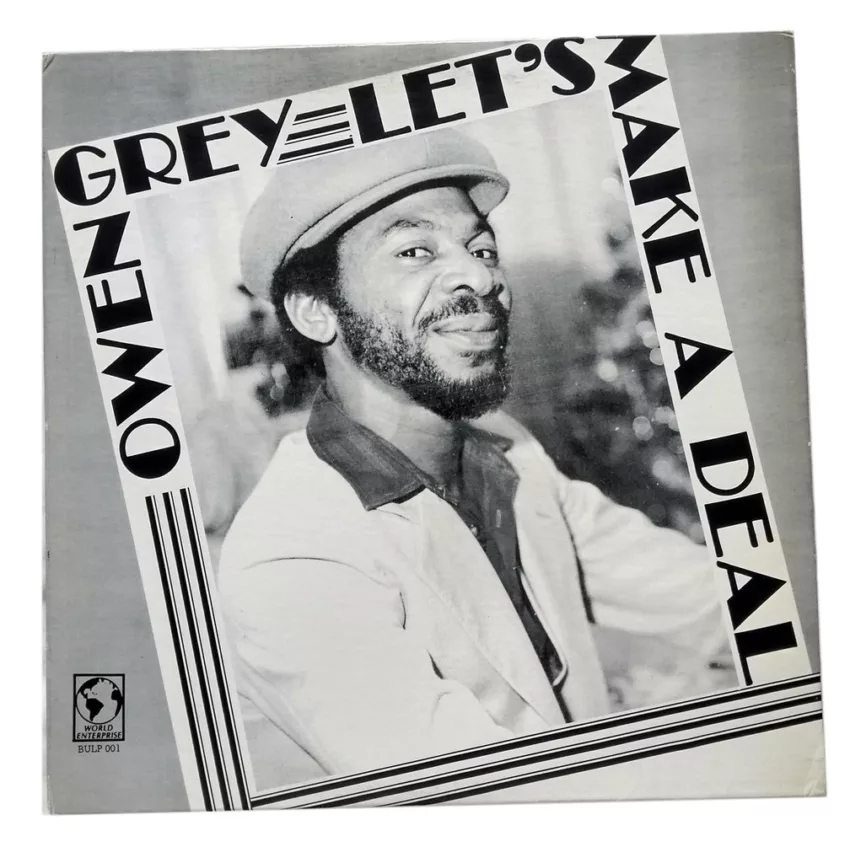In music history, there are vital innovators, like Owen Grey, born on December 5, 1939, in Kingston, Jamaica. While not as famous as some reggae legends, Grey’s influence, moving music, and boundary-pushing are legendary.
Exploring Owen Grey’s world means venturing into the heart of Jamaican music. His rhythmic style and profound lyrics have captivated global audiences, leaving an enduring impact. We’ll delve into his life, uncover the melodies that defined his career, and see how they still inspire musicians and fans today.
Exploring Owen Grey’s work isn’t just nostalgia; it’s a vital journey into Jamaican music’s origins and growth. His impact spans ska, rocksteady, and reggae, inspiring generations of artists. His songs also reflect the social and political issues of his time, offering insights into Jamaica’s history and culture.
Table of Contents
Early Life and Background

Birth and Family Roots
Owen Grey, whose birth name is Owen Leon Silvera, first drew his breath on December 5, 1939, in the vibrant city of Kingston, Jamaica. He hailed from a humble yet culturally rich family deeply embedded in the Jamaican way of life. Born to parents who cherished music as an integral part of their heritage, Grey’s roots were firmly grounded in the rhythms and melodies that would later shape his illustrious career.
Childhood and Early Influences
Grey’s childhood was immersed in the enchanting sounds of Jamaica, where music wafted through the air like a sweet tropical breeze. Raised in the heart of Kingston, he was exposed to a myriad of musical influences from a young age.
The vibrant and eclectic music scene in his neighborhood exposed him to everything from mento and calypso to rhythm and blues, igniting a passion for music that would burn brightly throughout his life.
It was in these formative years that Owen Grey’s remarkable vocal talent began to emerge. His voice, a gift from nature itself, soon became a source of wonder and inspiration to those around him. The echoes of Grey’s early musical experiences would resonate throughout his career, shaping his distinctive style and helping him forge a unique path in Jamaican music.
Similar read: Rebbie Jackson: An introduction
Education and Musical Beginnings
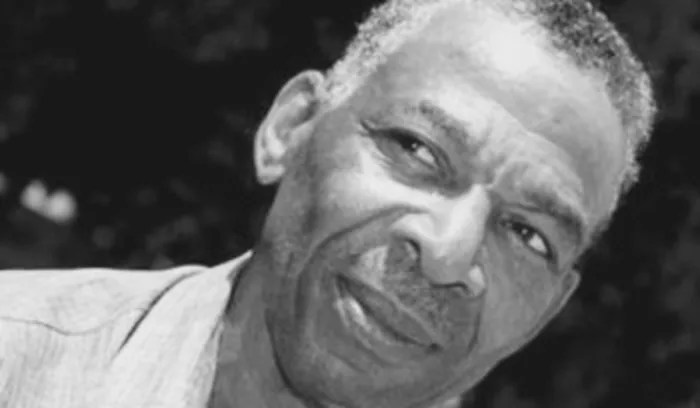
From a young age, Owen Grey showed musical talent and valued education. He attended Kingston’s Alpha Boys School, known for academics and music training. There, he refined his musical skills, learning about composition, harmony, and performance.
At Alpha Boys School, Grey’s musical journey took off. He formed his first band, The Jets, and wowed local audiences with his powerful voice and stage presence. These early experiences paved the way for a pioneering career in Jamaican music, leaving an enduring impact on the island’s musical scene.
Similar read: Charles K. Kao: Pioneer In Optical Fiber Communications
Musical Journey
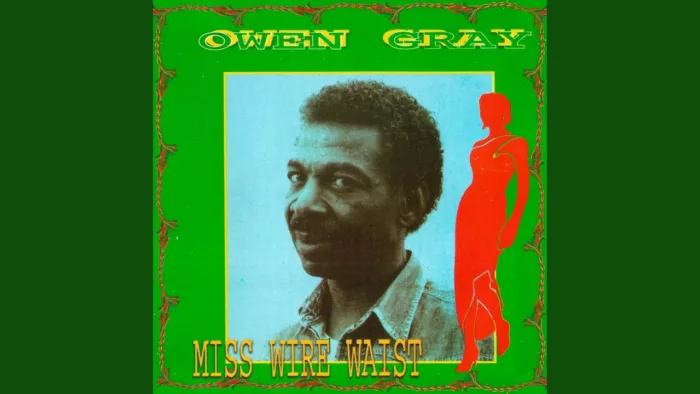
Owen Grey’s Entry into the Music Industry
Owen Grey’s journey in the music industry was defined by his passion and determination. In the 1950s Kingston music scene, he stood out, catching the eye of local producers and musicians. His big break came when Sir Coxone Dodd, founder of Studio One, discovered him. This moment marked his entry into the professional music world and set the stage for his remarkable career.
Influences and Inspirations
Grey’s musical style was a rich blend of influences. While he drew from Jamaican sounds like ska and mento, he also incorporated elements of rhythm and blues, and soul. This fusion created a captivating, unique sound that appealed to audiences in Jamaica and beyond.
One of his biggest inspirations was Ray Charles, an American rhythm and blues icon. Grey’s vocal delivery often mirrored Charles’ emotional power and soulful resonance, shaping his distinctive musical niche.
Early Successes and Breakthroughs
In the early stages of Owen Grey’s career, he quickly proved his exceptional talent and versatility. In 1959, his recording of “Please Let Me Go” made him a rising star. He followed this with hits like “Jezebel” and “You Can Never Stop Me Loving You,” solidifying his reputation as a trailblazer in Jamaican music.
Grey played a significant role in the shift from ska to rocksteady, a pivotal moment in Jamaican music. His 1968 song “Hold Me Tight” is considered one of the first rocksteady tracks, highlighting his adaptability and pioneer status in the industry.
Similar read: Who Is Isla Moon: Wiki, Age, Net Worth
Genre Exploration
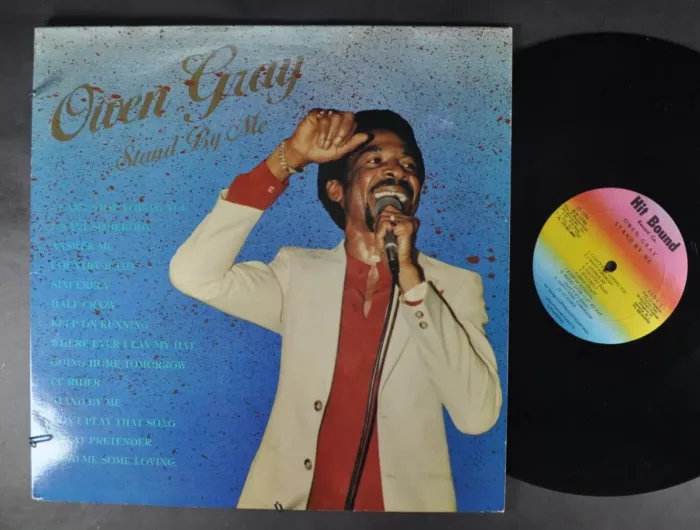
Overview of the Reggae Genre
Reggae, born in Jamaica, is known for its unique rhythms, social awareness, and powerful messages. It evolved from ska and rocksteady, rising in the late 1960s to become a global force. With its distinctive rhythm, steady tempo, and meaningful lyrics, reggae became a cultural movement, spreading messages of love, unity, and resistance.
Owen Grey’s Contributions to Reggae Music
Owen Grey’s impact on reggae is profound and pioneering. He played a vital role in the shift from rocksteady to reggae, contributing to its unique sound. His 1968 hit, “Give Me a Little Sign,” is considered one of the earliest reggae songs, capturing the essence of the genre’s emergence.
Grey’s voice, with its rich tone and deep emotion, was a perfect fit for reggae. His ability to convey heartfelt emotions resonated with global audiences. His dedication to addressing social themes in his music also aligned with reggae’s tradition of using music for social commentary and change.
Evolution of His Musical Style
Throughout his career, Owen Grey’s music evolved with the changing Jamaican sounds. He seamlessly moved from ska to rocksteady and finally to reggae, demonstrating his versatility as an artist.
His lyrics also evolved. Initially, he sang about love and relationships, but over time, he tackled deeper subjects, addressing social and political issues. This mirrored reggae’s broader development as a genre using music for commentary on inequality, poverty, and oppression.
Notable Works and Albums
Owen Grey’s musical catalog boasts a rich tapestry of albums and songs that have left an indelible mark on the world of music. Some of his most notable works include:
“The Owen Grey Sings Hits of ’69” (1969): This album showcased Grey’s versatility as he transitioned into the reggae era, featuring tracks like “Bongo Natty” and “Reggae Dance.”
“On the Beach” (1978): This album highlighted Grey’s enduring vocal prowess with tracks like “On the Beach” and “Rock with Me.”
“Jamaica’s First Homegrown Singer” (2000): A compilation of his classic hits, this album includes iconic tracks such as “Jezebel” and “Give Me a Little Sign.”
Similar read: Life Of Dr. Kamal Ranadive
The Significance of His Top Tracks
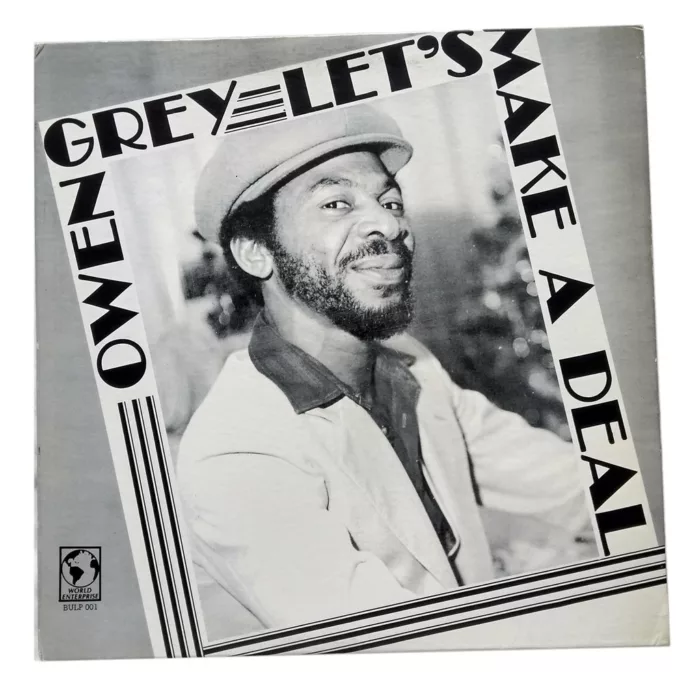
“Give Me a Little Sign”: This song is widely regarded as one of Grey’s most significant contributions to reggae. Its catchy melody and heartfelt lyrics encapsulate the essence of early reggae music, marking a pivotal moment in the genre’s history.
“Jezebel”: With its soulful delivery and poignant storytelling, “Jezebel” remains a timeless classic. Grey’s ability to convey complex emotions through his voice is exemplified in this track, making it a standout in his repertoire.
“Bongo Natty”: As reggae music evolved, Grey adapted seamlessly, and “Bongo Natty” is a testament to his ability to embrace new sounds and styles. This track blends reggae with elements of Rastafarian spirituality, showcasing Grey’s commitment to exploring deeper themes.
Collaborations and Partnerships

Throughout his illustrious career, Owen Grey engaged in notable collaborations with fellow artists, contributing to the rich tapestry of Jamaican music. Some of his most prominent collaborations include:
Laurel Aitken: Owen Grey worked closely with the “Godfather of Ska,” Laurel Aitken, in the early days of his career. Together, they recorded several influential ska tracks that helped shape the genre.
Millie Small: Grey collaborated with Millie Small, known for her hit single “My Boy Lollipop.” Their joint efforts resulted in tracks that seamlessly blended Grey’s soulful vocals with Small’s effervescent style.
The Skatalites: Grey’s collaborations with The Skatalites, one of Jamaica’s premier ska bands, contributed to the evolution of ska music into rocksteady. These partnerships produced songs that became iconic in the genre’s history.
Impact of These Collaborations
Grey’s collaborations shaped Jamaican music. With Laurel Aitken and The Skatalites, he contributed to ska’s development, the precursor to reggae. These collaborations defined early Jamaican music, influencing later artists and boosting reggae’s global appeal.
Similar read: Contributions Of Oskar Sala
Legacy and Influence
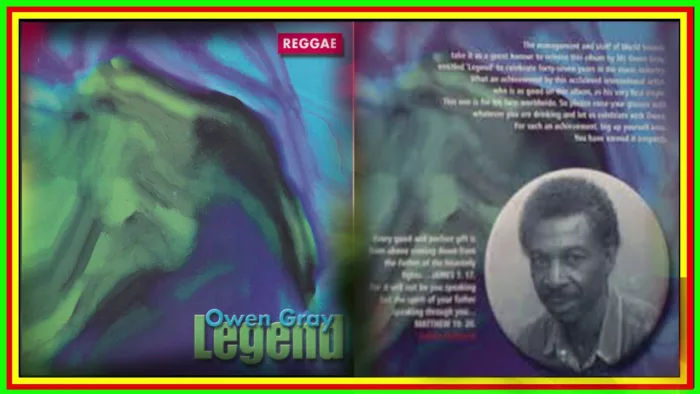
Owen Grey’s legacy in reggae is profound and enduring. He was a pioneer who shaped the genre, especially during its transition from rocksteady. His contributions to reggae rhythms and soulful vocals had a lasting impact.
Grey’s music, known for heartfelt lyrics and innovative melodies, inspired future reggae artists. His willingness to experiment with different styles and themes set a precedent for the genre’s growth. His work highlighted reggae’s power for social commentary, unity, and cultural expression.
How His Music Influenced Future Generations
Grey’s influence on later musicians is immeasurable. His unique vocal style, blending R&B and Jamaican folk, inspired countless artists aiming to capture the emotional depth and authenticity of his music.
Reggae legends like Bob Marley, Jimmy Cliff, and Toots and the Maytals were influenced by Grey, incorporating his sound into their own. His impact on reggae’s evolution is evident in today’s rhythms, melodies, and socially conscious themes.
Beyond reggae, Grey’s collaborations across genres showcased music’s ability to bridge cultural gaps, creating harmonious, genre-blending sounds. This spirit of innovation echoes throughout the global music industry.
- What is Epic Games Launcher and How to Install It? - July 15, 2024
- What Is Audius Music Streaming App and How Does it Work? - July 13, 2024
- The 10 Best Astronomy Apps for Stargazing - July 12, 2024

